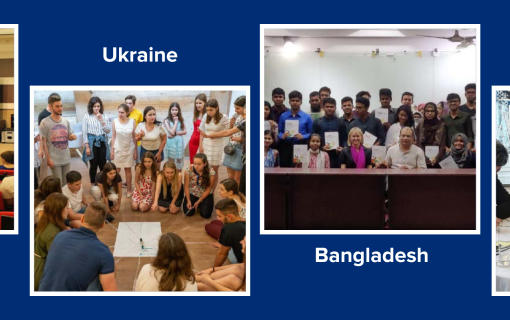Comoros: A Pre-Election Assessment Report, November 20, 1991
Executive Summary
The Federal Islamic Republic of the Comoros, a small archipelago lying between the Island of Madagascar and the Mozambique coast in the Indian Ocean, has suffered a series of unstable governments since independence in 1975, after 134 years as a French colony.
With an impoverished population of some 500,000 descended from Bantu Africans and Arabs, the islands depend on foreign aid, mainly French, to survive.
Less than two years ago, Said Mohamed Djohar, 72, then Supreme Court president, assumed the acting presidency, as provided by the 1978 Constitution, after President Ahmed Abdallah Abdburamene was assassinated on November 27, 1979. Four months later, after delayed and controversial elections, he was elected president over 7 adversaries for a six year term.
The coalition government led by President Djohar is temporary pending ratification of a new Constitution by referendum. The reformed government under the new constitution will have a Prime Minister in addition to President, a National Assembly, and a multi-party system. The interim government's progress has· been slowed by several alleged coup attempts and various opposition party imbroglios. Delays in French support payments creating state employee unrest, economic difficulties arising from slumping vanilla, cloves, and perfume essence export, and slow tourism development have also impeded governmental reform efforts. Several political parties oppose President Djohar's efforts to implement IMF and World Bank-promoted economic reforms. These parties also boycotted a Roundtable Conference of political parties convened this year to finalize and promote a new Constitution.
The President is now awaiting a favorable opportunity to call a referendum to pass the Roundtable's Constitution and create a new government under a Prime Minister. Multi-party elections for a National Assembly and Island and Municipal Councils should follow shortly after the referendum.
A number of socio-economic characteristics of the country are conducive to establishing a democratic political system. Comoros has a small, relatively homogeneous population of approximately half a million, grouped mainly in villages and towns; a total of only 700 square miles of mostly arable land on three close islands with enough resources for a self-supporting economy; and relatively easy internal communications, and good roads to get to town to do business, shop and vote. Comoros has the opportunity to organize itself into a working democracy that demonstrates model elections practices. The IFES team found interest in democratizing the country with free and fair elections, but very little awareness of the discipline it will take on the part of all citizens to bring it about, and little awareness of how to proceed.
The IFES team recommends that nine sets of actions be undertaken to help establish a working democracy that includes fair and free elections in Comoros. These are 1) institution of a clarified Constitution and Election Code; 2) a broad civic education program; 3) further election worker training; 4) creation of an independent Election Commission; 5) improved enumeration and security measures; 6) reorganized and redefined political districts; 7) more economical and transparent election practices; 8) observers from international organizations at forthcoming elections; and 9) provision of modest seed funds to enable Comoros to demonstrate improved elections practices. The IFES team recommends material and technical support packages for seven of these nine recommended actions, as detailed in Part IV of this report.
Members of the international donor community could support these actions with financial assistance, totaling about a half million dollars. Most recommendations' support packages range only from $23,000 to $63,000 each.
The IFES team wishes to thank Ambassador Kenneth Peltier who had the foresight to request the mission and who supported it admirably. The team also extends its thanks to Mr. Daroueche Abdallah, Secretary General of the Comoros Ministry of Interior whose interest and responses to our queries were unflagging.








